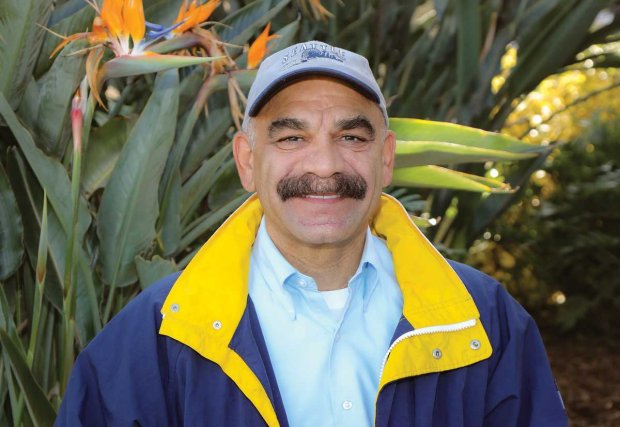Quinn Carney was all too familiar with chest pain, having had a heart attack and two stents placed in his heart a year ago at another facility. When he experienced another bout of chest pain in late October, he went straight to the ER at Corona Regional Medical Center.
Carney thought he was having another heart attack and took his heart medicine before arriving at the ER, where he was promptly triaged. “They began drawing blood and running tests. My heart enzyme levels were normal, so I was not having a heart attack, but a cardiologist came in to evaluate me,” says Carney. "I was admitted and the next day, they did a stress test and found there may be additional blockages in one of the major arteries.”
Surviving a Widow Maker
Sumit Khandhar, DO, Director of the Cardiac Catheterization Lab, scheduled an angiogram for Carney, expecting to find and promptly treat any blockages. "We saw on the monitor that Mr. Carney’s left anterior descending artery, also known as the ‘widow maker,’ was about 80 to 90% blocked in three different areas,” Khandhar says, “so we performed balloon angioplasty followed by placement of stents at those locations."
Carney says he was awake throughout the procedure and could see the blockages on the monitor. "Dr. Khandhar knew exactly what he was doing and was very professional and efficient," Carney adds. "He answered all of my questions during the process and afterward I was taken to ICU, where I continued to receive excellent care."
Luckily for Carney, he escaped a heart attack this time. “A year ago, I did suffer a heart attack and received two stents at another hospital. I was also on medication to prevent further blockages," Carney says. "I am glad I had my procedure here. I had a great patient experience, from the moment I arrived until I left. In fact, Dr. Khandhar is now my cardiologist."
Minimally Invasive, Lifesaving Procedure
Corona Regional Medical Center is approved and licensed as a percutaneous coronary intervention (PCI) facility for specialized cardiac care. "PCI can be used to open a blood vessel narrowed by plaque buildup (atherosclerosis) or occluded by a clot (myocardial infarction)," Dr. Khandhar says. “It’s a minimally invasive, often lifesaving, procedure. We have performed about 200 procedures in the last 14 months, with excellent outcomes, and our procedural volume continues to grow."
Carney is very grateful for the care he received. "Dr. Khandhar is very genuine and has a great bedside manner. And the entire staff at Corona Regional Medical Center is very well-trained, sensitive, encouraging and caring. This is more than just a job for them. You can tell they love what they do, and it is very rare to find that in an entire organization. I definitely recommend Corona Regional."
Continuity of Care
Minutes matter, particularly when emergency physicians are detecting and treating acute illnesses, says Tae Eung Kim, MD, FACEP, Medical Director of the Emergency Department at Corona Regional. “We are trained to recognize those conditions that require immediate attention, those which require admission to the hospital for further evaluation and treatment, and those which may be treated in the emergency department and then safely discharged home to follow up with their primary care doctors,” he says.
No matter what kind of care is needed, you can find it at Corona Regional. If a patient is treated in the ER and admitted, there is a continuity of care from the time they walk in the door until they are discharged. If home care is needed, that can be arranged as well. “Our focus is that everyone has a great patient experience and that appropriate, quality care is provided at all times,” says Dr. Kim.

